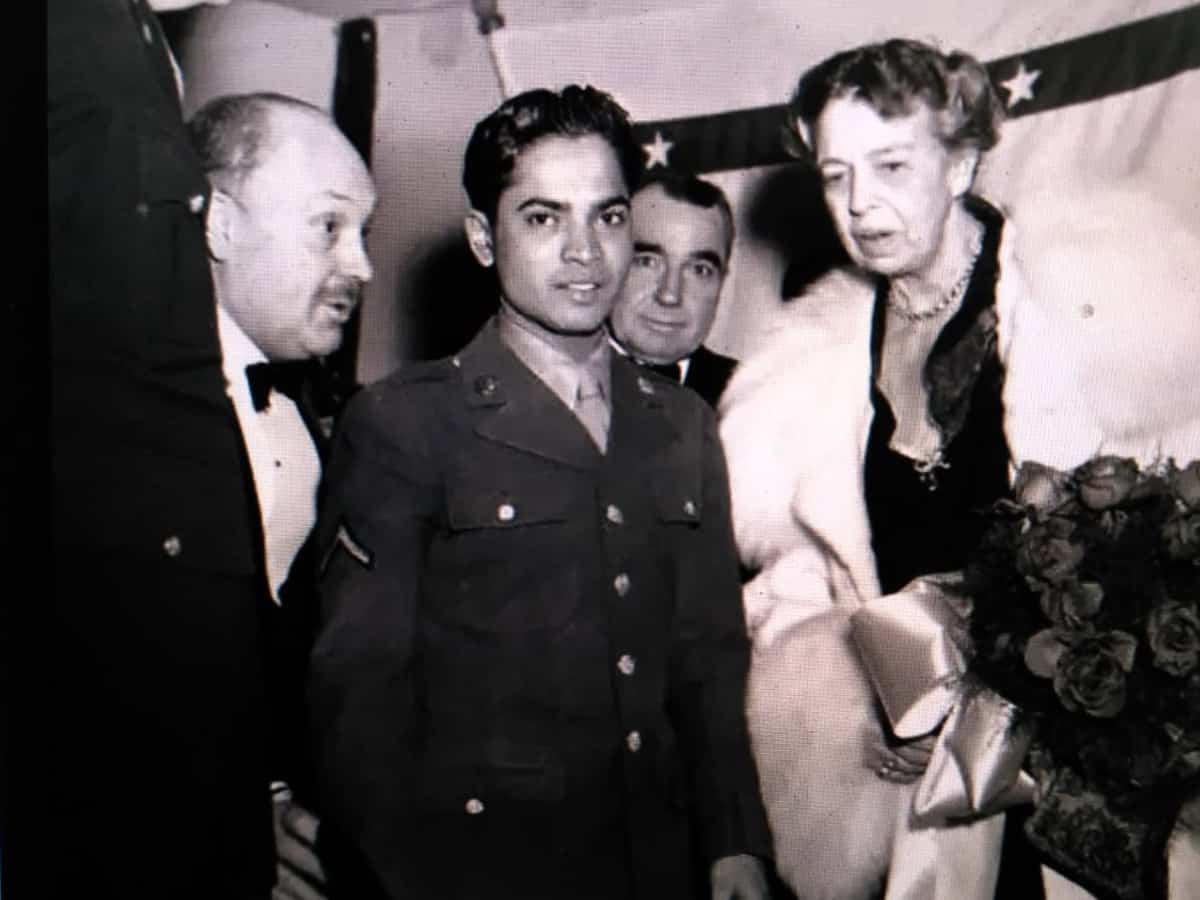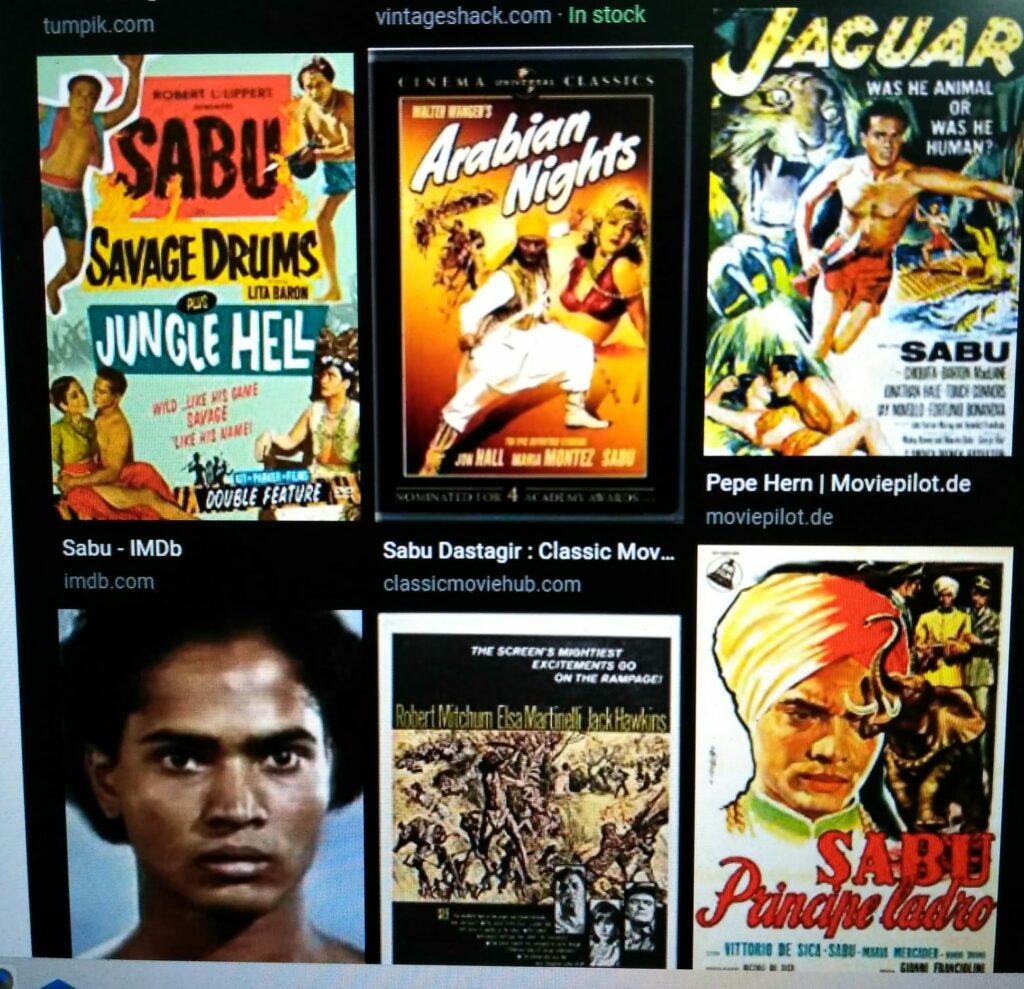
Nowadays we hear of many Indian actors and actresses who have acted and are still acting in Hollywood films with varying degrees of success. Among the well known examples are Aishwarya Rai Bachchan, Amitabh Bachchan, Tabu, Priyanka Chopra, Om Puri, Irrfan Khan and others. But hardly anyone knows about the Indian who was the first to make a mark in Hollywood. His name was Sabu Dastagir. He rose from a humble family background and became so well known that he was inducted into the Hollywood Walk Of Fame in 1960.
Sabu was born in 1924 in Mysore. Sabu’s father was an elephant mahout and it was due to his father’s work that Sabu became familiar with the ways of elephants from a young age. When he was 13 years old, Sabu was discovered by documentary filmmaker Robert Flaherty. The filmmaker was an American who made several movies of people in unusual places with unusual occupations.
The experienced Flaherty saw a spark in Sabu and probably his familiarity with elephants prompted the director to cast him in the lead role in his film titled Elephant Boy. The story was an adaptation of Rudyard Kipling’s story “Toomai of the Elephants.” Flaherty won the Venice festival’s “Best Director” award for Elephant Boy and Sabu became famous too. Sabu played the role perfectly and caught the eye of other filmmakers who had similar themes in mind.
In a review of the film, The New York Times said that the film was “one of the most likable of the jungle pictures and has a simple story at its heart.” The NYT also stated that “Sabu, the Indian boy, is a sunny-faced, manly little youngster, whose naturalness beneath the camera’s scrutiny should bring blushes to the faces of the precocious wonder-children of Hollywood.”

In 1938 the well-known producer Alexander Korda brought out a film called The Drum in which Sabu played the role of Prince Azim. Then Sabu also played the role of Abu in the 1940 fantasy adventure film titled The Thief Of Baghdad. In 1942, Sabu played the role of Mowgli in Rudyard Kipling’s story The Jungle Book. Later he starred in three films for Universal Pictures. The films were Arabian Nights (1942), White Savage (1943) and Cobra Woman (1944).
In 1944, Sabu became an American citizen and then joined the US Air Force. The Second World War was in progress and Sabu served as a gunner on B-24 Liberator bomber aircraft. He flew on numerous occasions as a member of the 370th Bombardment Squadron and was awarded the Distinguished Flying Cross for his valor. But after the war his film career began to decline. He was unable to secure the roles in Hollywood that he had done in British films. In 1948 he married actress Marilyn Cooper.
Surprisingly in India he was not accorded necessary importance. The reason for this remains unclear. It could have been due to the fact that he had become an American citizen and producers were reluctant to cast him as a lot of formalities would have to be carried out. He was considered for the role of Birju in Mehboob Khan’s film Mother India (1957). But Sabu was denied a work permit by the Indian Government and the role went to Sunil Dutt. So Sabu never got the chance to act in any Indian film.
His death in 1963 from a heart attack was unexpected and it left the film world in shock. Just two days before his death, during a routine medical check, his doctor had said: “If all my patients were as healthy as you, I would be out of a job.” But surprisingly after the check up, he had a fatal heart attack. Thus ended the life of the first Indian actor who had captured the hearts and minds of film fans in Britain and America.
